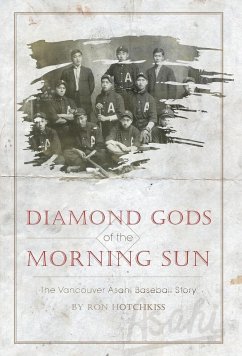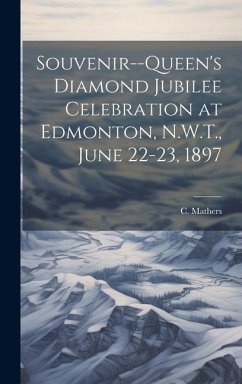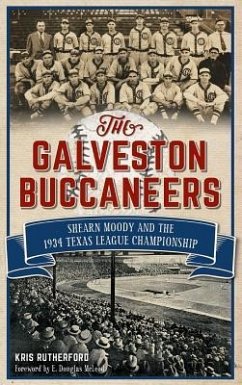
Diamond Gods Of the Morning Sun
The Vancouver Asahi Baseball Story
Versandkostenfrei!
Versandfertig in über 4 Wochen
26,99 €
inkl. MwSt.
Weitere Ausgaben:

PAYBACK Punkte
13 °P sammeln!
This is the story of the Asahi, a Japanese Canadian baseball team that was formed in 1914 and competed in Vancouver's Caucasian leagues between 1918 and 1941. Using a strategy called "brain ball," the smaller Japanese defeated the larger white teams and won a number of championships. This describes what happened to some of these Asahi players after Pearl Harbor when British Columbia's Japanese were sent to internment camps in the province's interior. Here they played an important role in establishing baseball leagues. Following the war, many former Asahis came to eastern Canada where they cont...
This is the story of the Asahi, a Japanese Canadian baseball team that was formed in 1914 and competed in Vancouver's Caucasian leagues between 1918 and 1941. Using a strategy called "brain ball," the smaller Japanese defeated the larger white teams and won a number of championships. This describes what happened to some of these Asahi players after Pearl Harbor when British Columbia's Japanese were sent to internment camps in the province's interior. Here they played an important role in establishing baseball leagues. Following the war, many former Asahis came to eastern Canada where they continued to play an important role in baseball as they began new lives. There is a second story here as well. It is about a former Asahi fan who was determined that the Asahi legend would not die and how she insured that what they meant to the Japanese community before World War II would never be forgotten.



![The Victoria Diamond Jubilee History of Canada [microform] Cover The Victoria Diamond Jubilee History of Canada [microform]](https://bilder.buecher.de/produkte/66/66196/66196012n.jpg)








